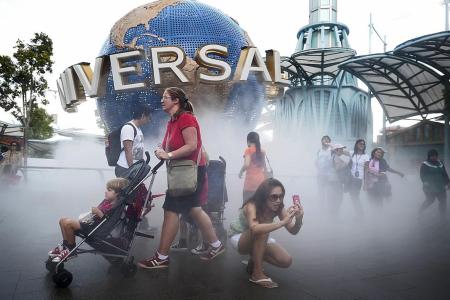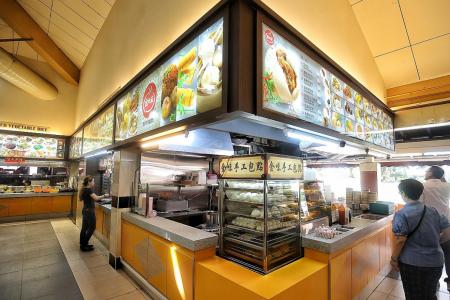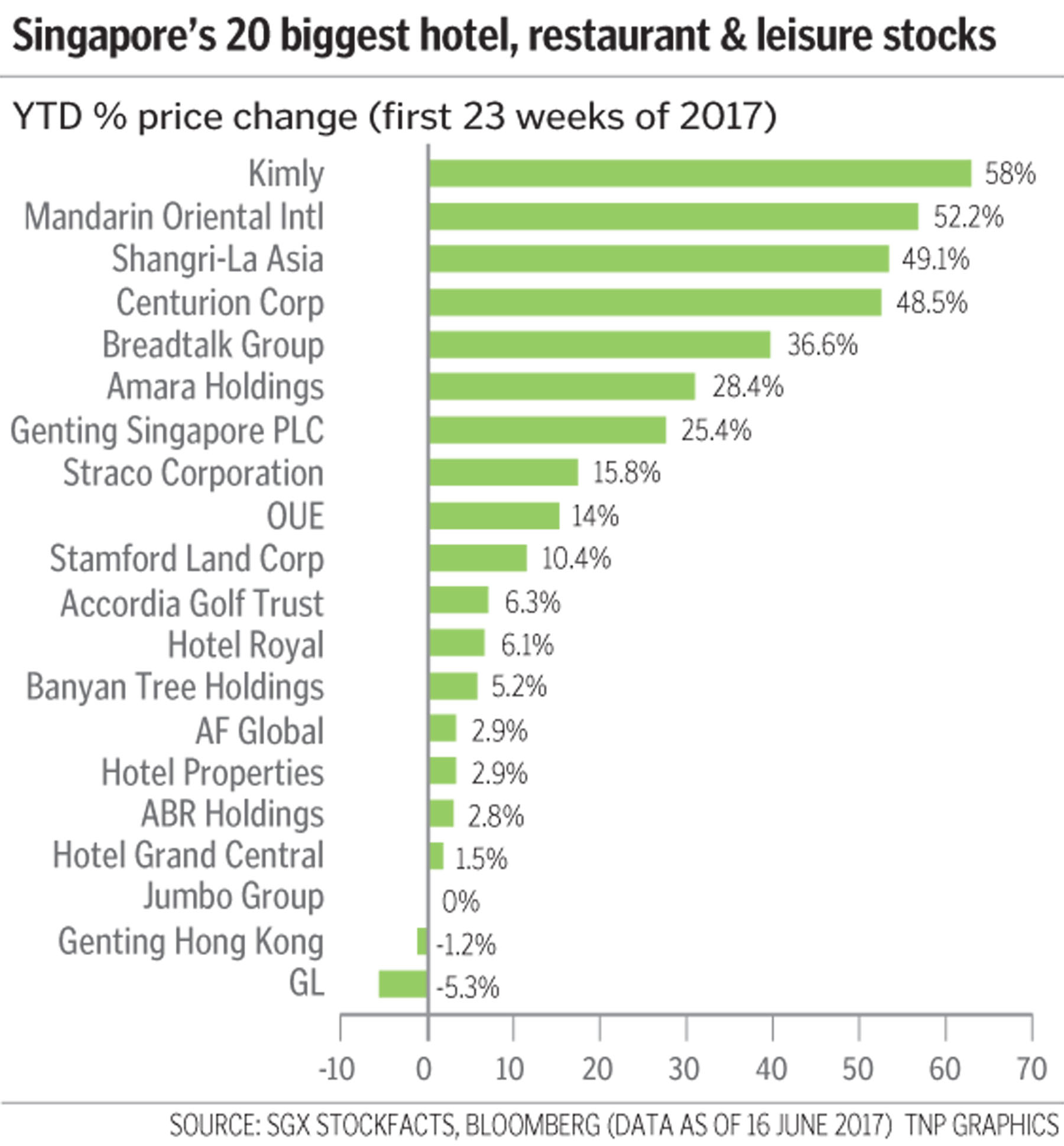Hospitality stocks on the rise
The 20 largest capitalised stocks in hotel, restaurant and leisure industry have done well this year
Last week, Universal Studios Singapore at Resorts World Sentosa was voted the top amusement park in Asia for the third consecutive year.
Arguably the island's most popular tourist attraction and accounting for more than one-third of international visitor arrivals annually, it is managed by Genting Singapore, which is the largest capitalised stock within the hotel, restaurant and leisure industry on the Singapore Exchange (SGX).
Genting Singapore is also Asia Pacific's eighth biggest stock of the industry by market capitalisation.
Shares of Genting Singapore, which is also a constituent of the Straits Times Index, have rallied 25 per cent in the year-to-date.
At a media briefing on the consumer sector last week, SGX market strategist Geoff Howie said stocks within the hotel, restaurant and leisure industry have done comparatively well this year.
The 20 largest capitalised stocks of the industry have averaged an 18 per cent price gain in the year-to-date, which is a comparable performance to their global peers.
ROTATION
Mr Howie pointed out that the industry's strong performance this year could be a sign of sector rotation - investors shifting their sights to better performing stocks.
The consumer discretionary sector, which these industries drive, saw a 14 per cent gain.
Though these are dull results compared to the 44 per cent gain of this year's top-performing IT sector, "pockets of strength" were found within the hotel, restaurant and leisure stocks in the consumer discretionary sector, which could partly be attributed to the recent growth in the real estate segment, added Mr Howie.
He provided some figures -within the 20 biggest hospitality stocks, six of them have averaged a 22 per cent gain in the year-to-date.
These six stocks registered a mere 2 per cent gain last year.
In contrast, the six biggest consumer staples stocks, representing food products, have averaged an 11 per cent drop this year, said Mr Howie.
But last year, these stocks were top performers, with an average 27 per cent gain.
The newest SGX entrant from the industry is coffee shop operator, Kimly.
The first coffee shop chain to be listed on the local bourse caught the attention of investors when it made an appearance on the Catalist Board on March 20.
It opened trading at 55 cents, which is 120 per cent above its initial public offering price of 25 cents.
SGX also noted that the heartland coffee shop chain has since gained 58 per cent from its initial price offer.
Kimly is Singapore's 12th biggest hotel, restaurant and leisure stock by capitalisation.
Another stock in the industry that has recently gained momentum is Mandarin Oriental.
Mandarin Oriental International, which is part of the Jardine Matheson Group, has a standard listing on the London Stock Exchange, with secondary listings in Bermuda and Singapore.
Last month, it traded more than four times its average three-month volume, which usually sees an average of $1 million worth of transactions a day, said an SGX report last month.
In a week, its shares rose 10 per cent, which means a year-to-date 52 per cent price gain in Singapore dollars.
Mandarin Oriental operates 29 hotels and eight residences in 19 countries and territories, and it has a pipeline of hotels and residences under development.
The buzz from investors comes after Mandarin Oriental announced it was considering a possible sale of one of its most famous properties - The Excelsior in Hong Kong - last month.
There are more than 30 stocks from the hotel, restaurant and leisure industry listed on the SGX.
Another top performer in the year-to-date is luxury hotel chain Shangri-La Asia, which has seen a 49.1 per cent price gain in the year-to-date.
Worldwide, there are 1,200 stocks that represent this industry.
The three industry leaders by capitalisation are familiar brands - McDonald's, Starbucks and Las Vegas Sands.
Besides hotels and restaurants, these stocks include providers of casinos and gaming facilities, travel agencies and facilities such as stadiums, golf courses and fitness centres.
DRIVER
This industry is a key driver of the consumer discretionary sector, which consists of cyclical stocks.
The performance of these stocks is closely related to the state of the economy, making them more volatile, especially when compared to the consumer staples industry.
For instance, hospitality stocks were expected to have ended last year on a low note, due to the slowdown in business travel.
In a note on June 27, OCBC Bank analyst Deborah Ong gave the hospitality industry a "neutral" rating.
The brokerage firm has hospitality-related real estate investment trusts under its coverage.
Ms Ong cited latest figures from the Singapore Tourism Board, which showed that visitor arrivals are increasing but noted that revenue per available room - a performance metric in the industry - was on the decline, especially among mid-tier hotels.
She said: "While we believe leisure demand will continue to hold up well in 2017, we remain cautious with regard to the strength of corporate demand."
Get The New Paper on your phone with the free TNP app. Download from the Apple App Store or Google Play Store now




